Introduction
The field of Electrical and Electronics Engineering (EEE) is considered to rapidly advance today, as it is pushing the boundaries of technology toward energy systems, automation, communications, and the like. For EEE scholars, writing a dissertation is not simply an academic requirement, in fact, it gives them the chance to realize their ideas into contributions towards innovation and real life. But changing something into a really nice dissertation from an idea requires a lot of things: well-structured approach, technical know-how, and strategic execution.
Here, we will discuss key steps for EEE PhD scholar’s assistance that may help in preserving their research throughout the dissertation journey, beginning from topic selection and ending with submission.
Choosing the Right Research Topic
The chosen topic can never be more relevant or important for a dissertation that would make it a success. The following points may help here in choosing and selecting the topic:
• Industry relevance - Opt for a topic that has current technological trends running through it, like renewable energy, smart grids, electric vehicles or some IoT based automation-related topic.
• Research Gap - Identify those aspects of the current literature where it is not available and make the gap get filled through novel findings.
• Feasibility - The topic should be manageable with respect to time and resources available.
• Personal Interest - Choosing a subject of genuine interest keeps the motivation level higher throughout the research process.
Some currently trending research areas in EEE are:
• Power electronics in sustainable energy solutions
• The use of machine learning in electrical systems
• Wireless power transfer
• Smart grid optimization
• Modern trends in VLSI design
Conducting A Review of Literature
A good literature review provides the right context for the research and highlights the voids that are to fill the niches in your particular study. Authors are to:
• Get research papers from highly regarded journals such as IEEE, ScienceDirect, and Springer.
• Critically analyze previous works, identifying key methodologies, limitations, and findings.
• Arrange the literature thematically for clarity and coherence.
• Emphasize the importance of the identified research problem.
Methodology: Building a Strong Research Framework
Research methodology refers to the method or the procedure in which data is collected, analyzed and interpreted. Most of the EEE dissertations usually involve:
• Experimental Research- Hardware design and testing or model testing of experiments or simulations.
• Analysis Based on Simulations- Using simulation software like MATLAB, Simulink or PSpice to validate results.
• Theoretical Modelling- Mathematical modeling which represents the behavior of the system.
• Comparative Analysis- Comparison of different techniques to ascertain the best.
Ensure the methodology aligns with the research objectives and is well-documented for reproducibility.
Implementation: From Theory to Practical Impact
To convert ideas into something real, the scholar should:
• Build working prototypes or simulation models.
• Refine designs based on performance metrics.
• Verify results against theoretical expectations or industrial standards.
• Discuss the real-world applicability and scalability of the proposed solution.
For instance, an EEE dissertation in smart grid technology should not just present theoretical models, but rather simulate the power flow, efficiency, and stability under real-world conditions.
Data Analysis and Result Interpretation
An effective data analysis strengthens the credibility of research. Concerning the matter at hand, the following points apply:
• The appropriate statistical and computational tools must be employed.
• The results should be presented graphically, with charts and tables for ease of understanding.
• Compare the results with prior studies so as to establish how significant they are.
• Discuss possible deviations and improvements.
Creating the Dissertation Formal Structure and Writing
An organized dissertation allows for better readability, as per academic standards. The following are the components of the standard structure:
1. Title Page- Defining the research area in clear terms.
2. Abstract-Having vital findings succinctly summarized in 250-300 words.
3. Introduction-Outlining the research problem, objectives and significance.
4. Literature Review-Bringing out previously existing research and existing gaps.
5. Methodology-Research design explained with tools used.
6. Application & Results-Presentation of findings with analysis.
7. Conclusion & Future Scope-Summing up the contributions with recommendations for future endeavours.
8. References-sources quoted in IEEE or APA format.
Editing, Proofreading, and Final Submission
In the very end before submission, the dissertation must be verified for:
• Technical correctness - Cross-checking equations, diagrams, and algorithms.
• Properly structured – Keeping a logical flow throughout the text.
• Plagiarism-free – Running a check for originality using tools like Turnitin.
• Well formatted – According to the university's requirements concerning font, citation, and layout.
It would be advisable to complete drafts of these sections for your supervisor to help in the process of polishing it up.
Conclusion
Among the academic exercises, an EEE dissertation is one that can indeed touch the advancements in industry and technology. With a strong topic, proper research, effective presentation, students can turn their ideas into contactable contributions. With the right guidance, determination and attention to detail, EEE students can accomplish a very high degree of success in their dissertation journey and probably leave behind treasured legacies in the field.
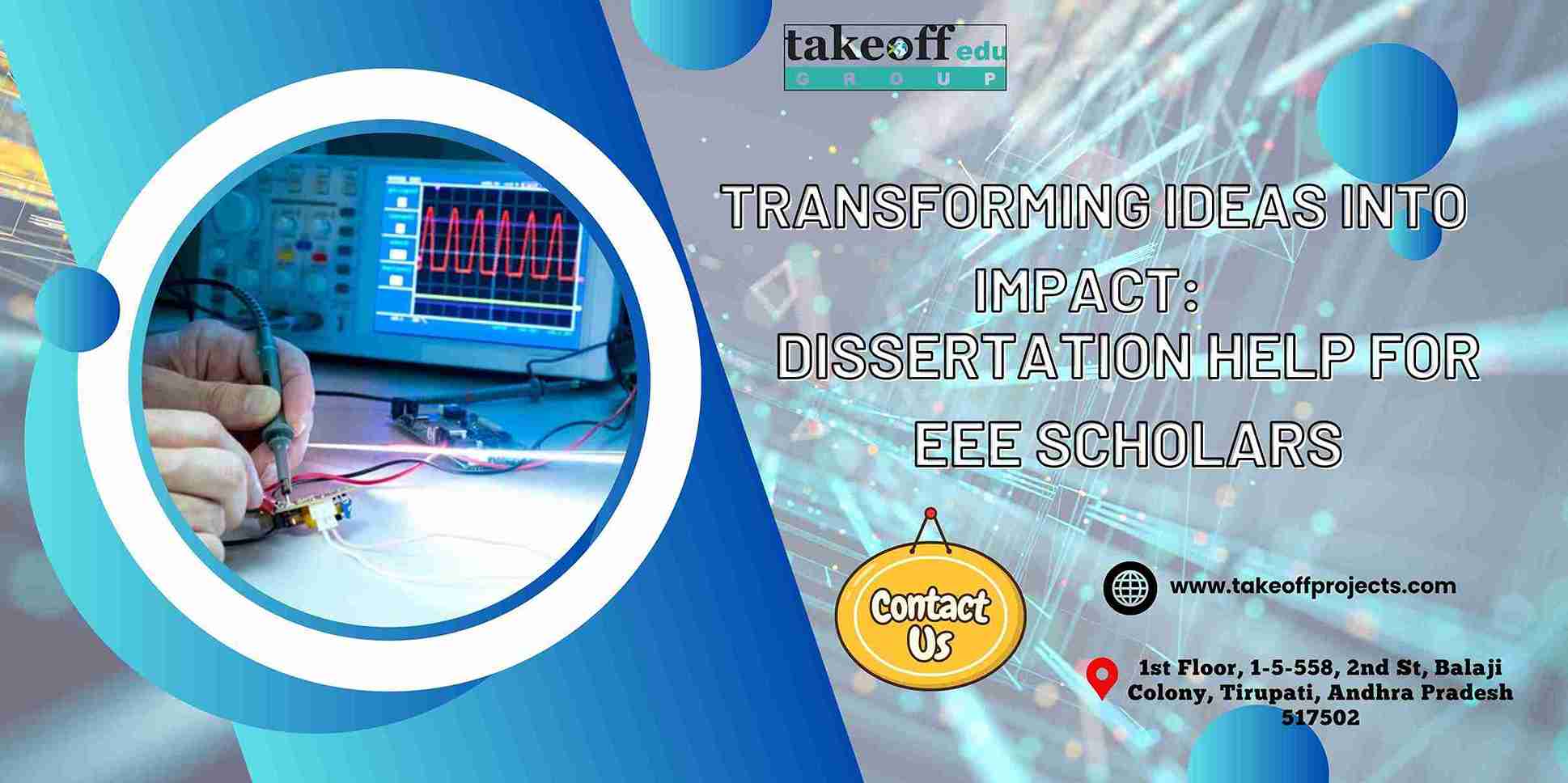
 PhD in Electrical Engineering: Research & Writing Support
PhD in Electrical Engineering: Research & Writing Support  Which are the Best PhD Assistance and Dissertation Writing Services in India?
Which are the Best PhD Assistance and Dissertation Writing Services in India?  How to Choose a PhD Research Domain: EEE, ECE, or CSE?
How to Choose a PhD Research Domain: EEE, ECE, or CSE? 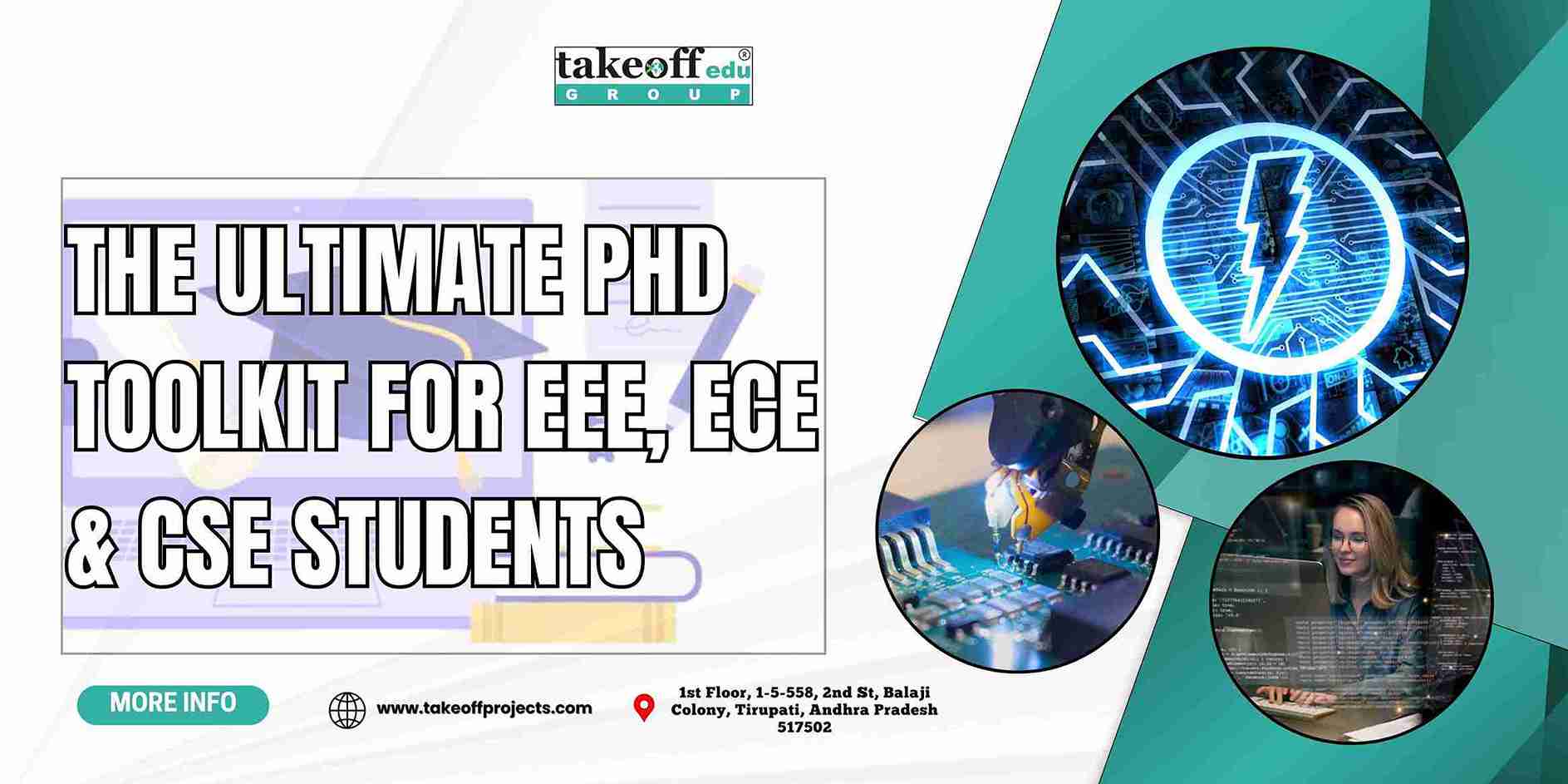 The Ultimate PhD Toolkit for EEE, ECE and CSE Students
The Ultimate PhD Toolkit for EEE, ECE and CSE Students 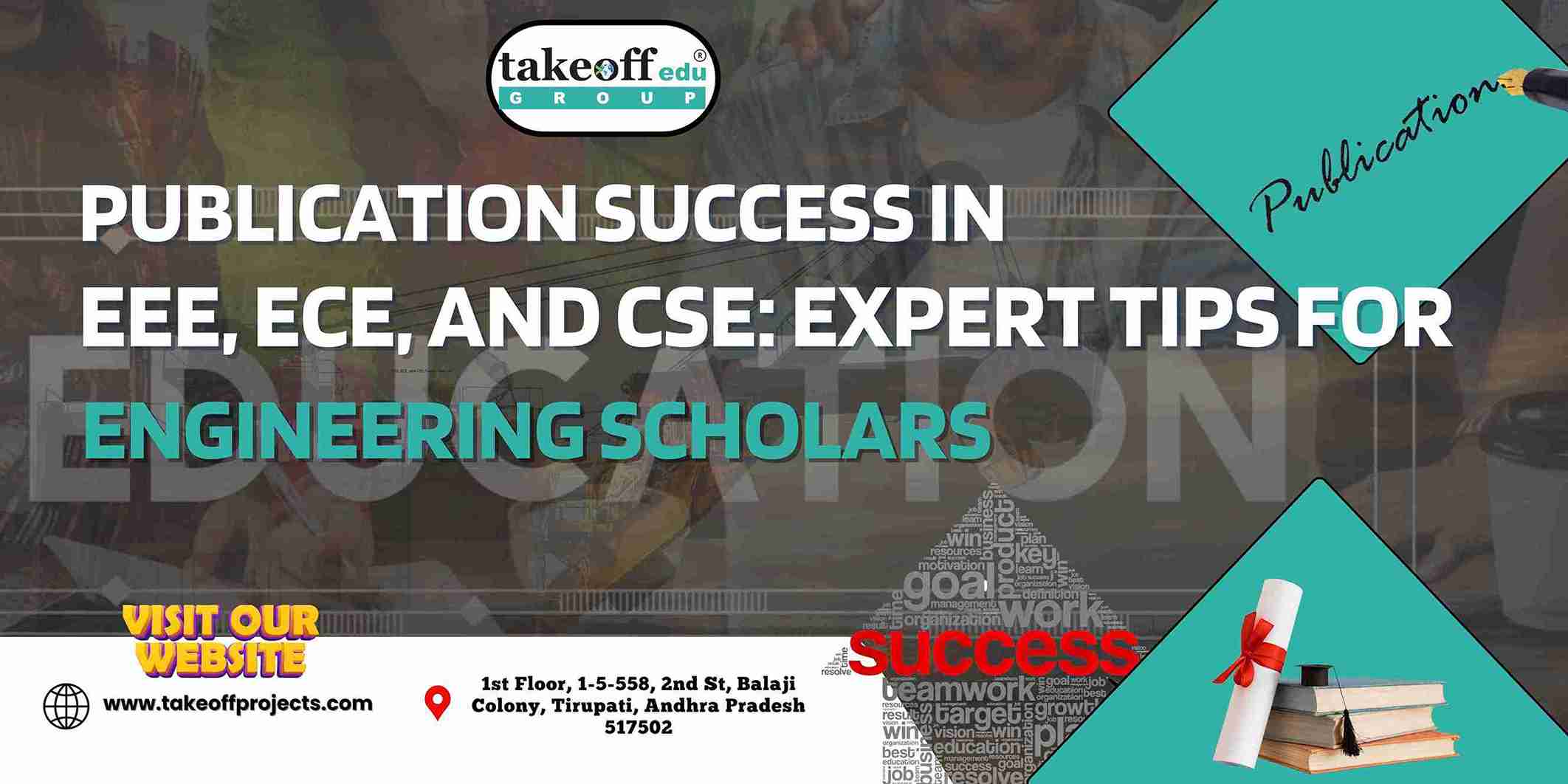 Publication Success in EEE, ECE, and CSE: Expert Tips for Engineering Scholars
Publication Success in EEE, ECE, and CSE: Expert Tips for Engineering Scholars 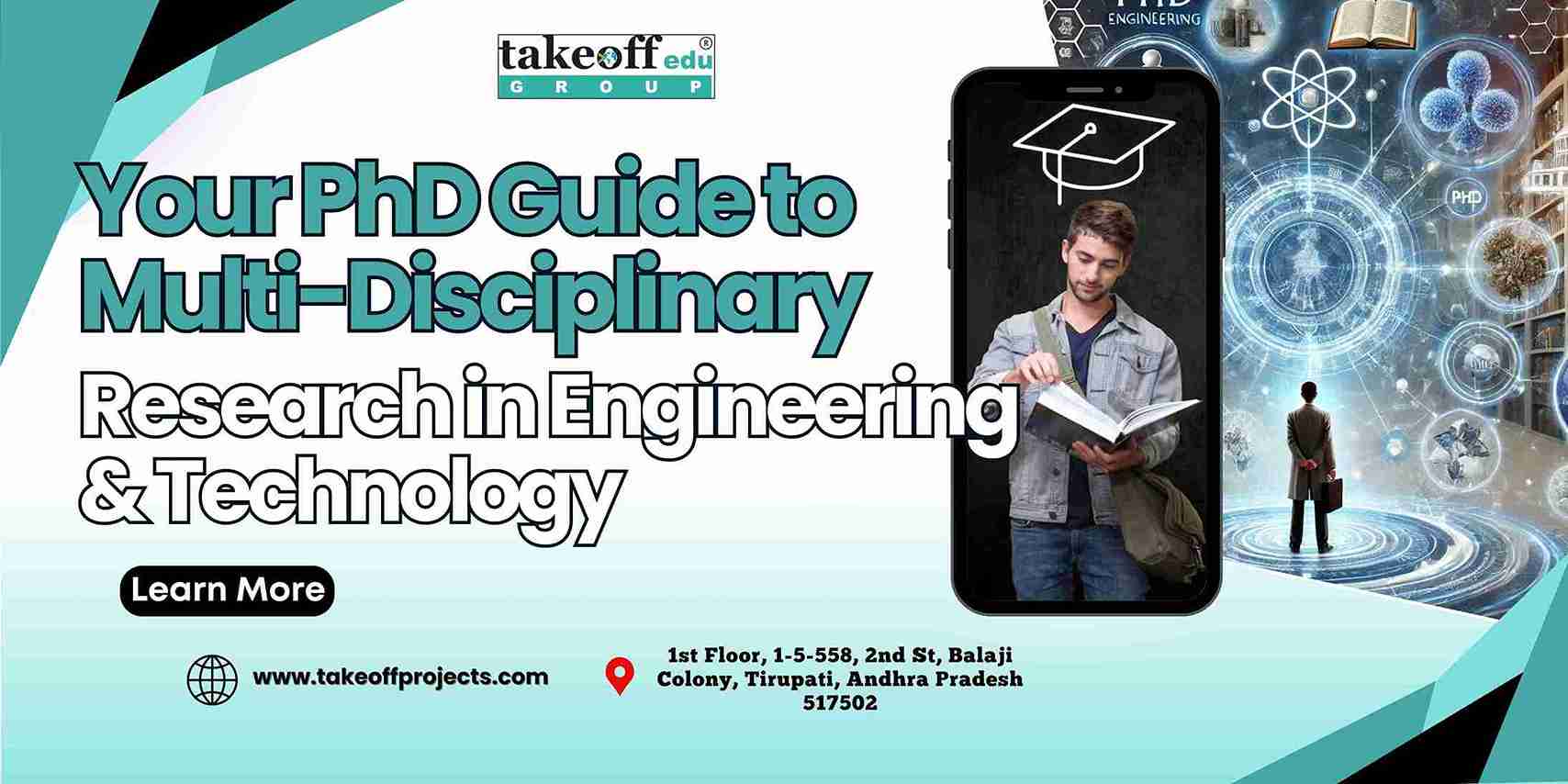 Your PhD Guide to Multi-Disciplinary Research in Engineering and Technology
Your PhD Guide to Multi-Disciplinary Research in Engineering and Technology  Top PhD Topics across EEE, ECE, and CSE: Bridging Innovation and Impact
Top PhD Topics across EEE, ECE, and CSE: Bridging Innovation and Impact 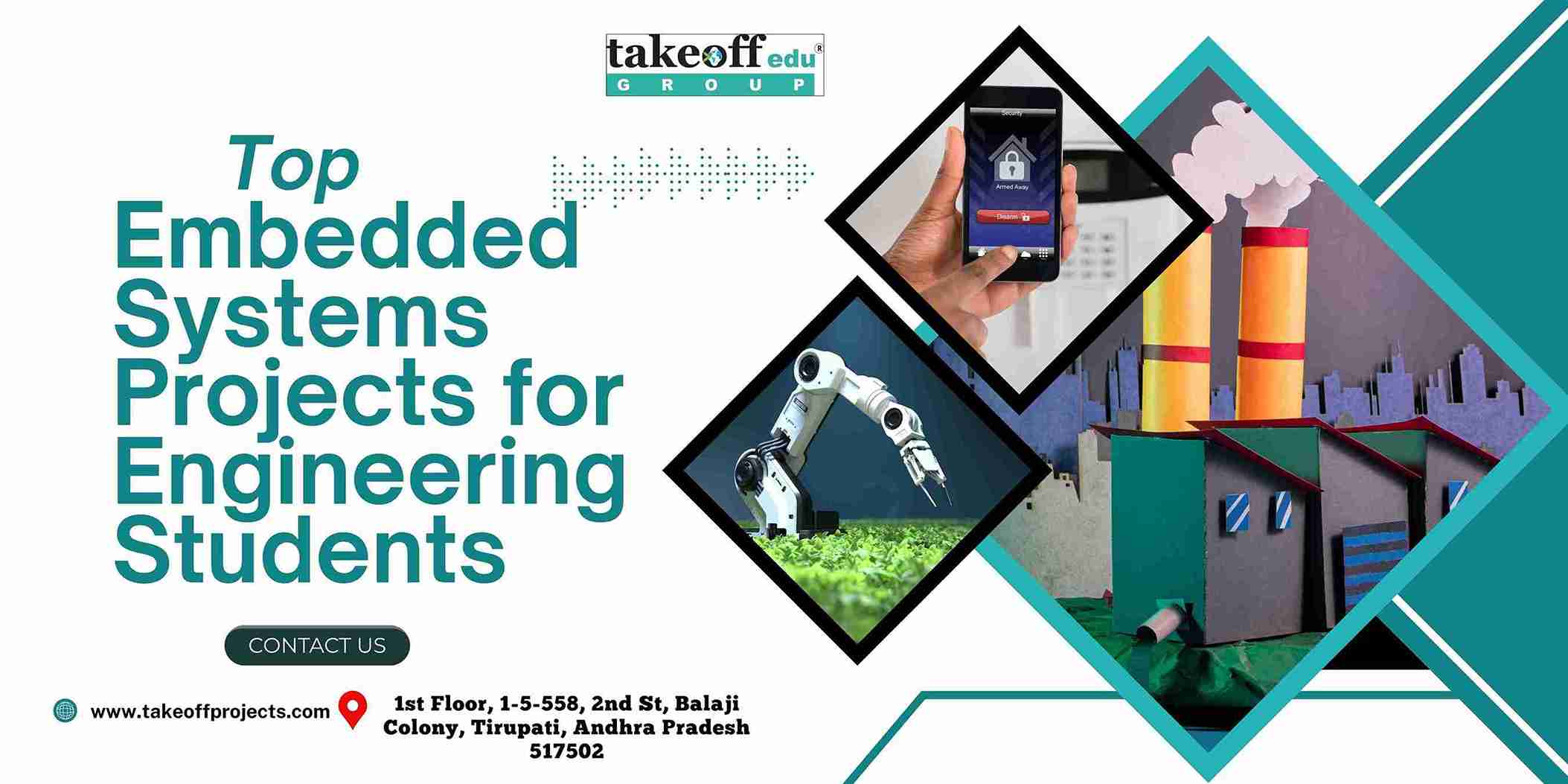 Top Embedded Systems Projects for Engineering Students
Top Embedded Systems Projects for Engineering Students 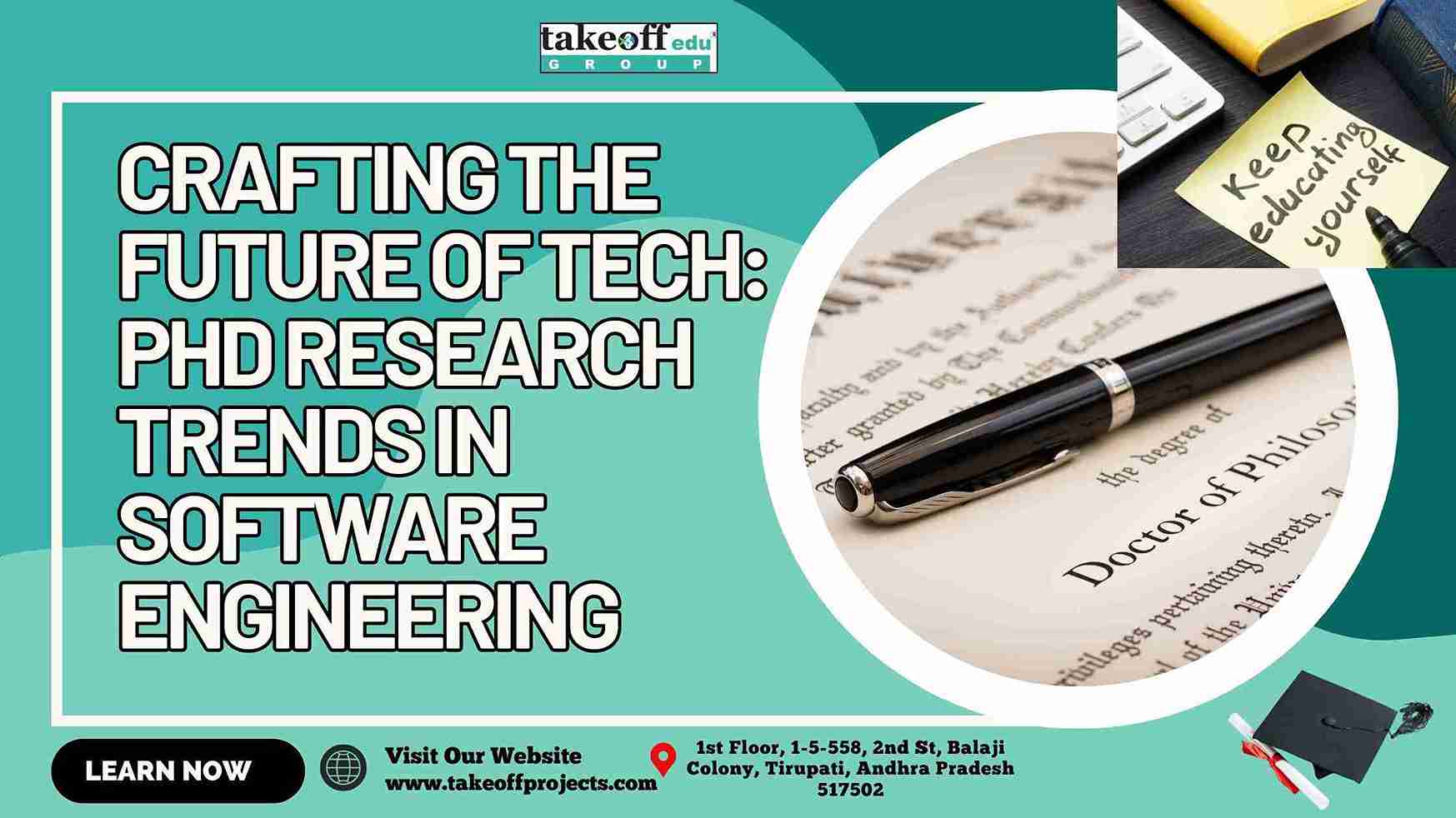 Crafting the Future of Tech: PhD Research Trends in Software Engineering
Crafting the Future of Tech: PhD Research Trends in Software Engineering 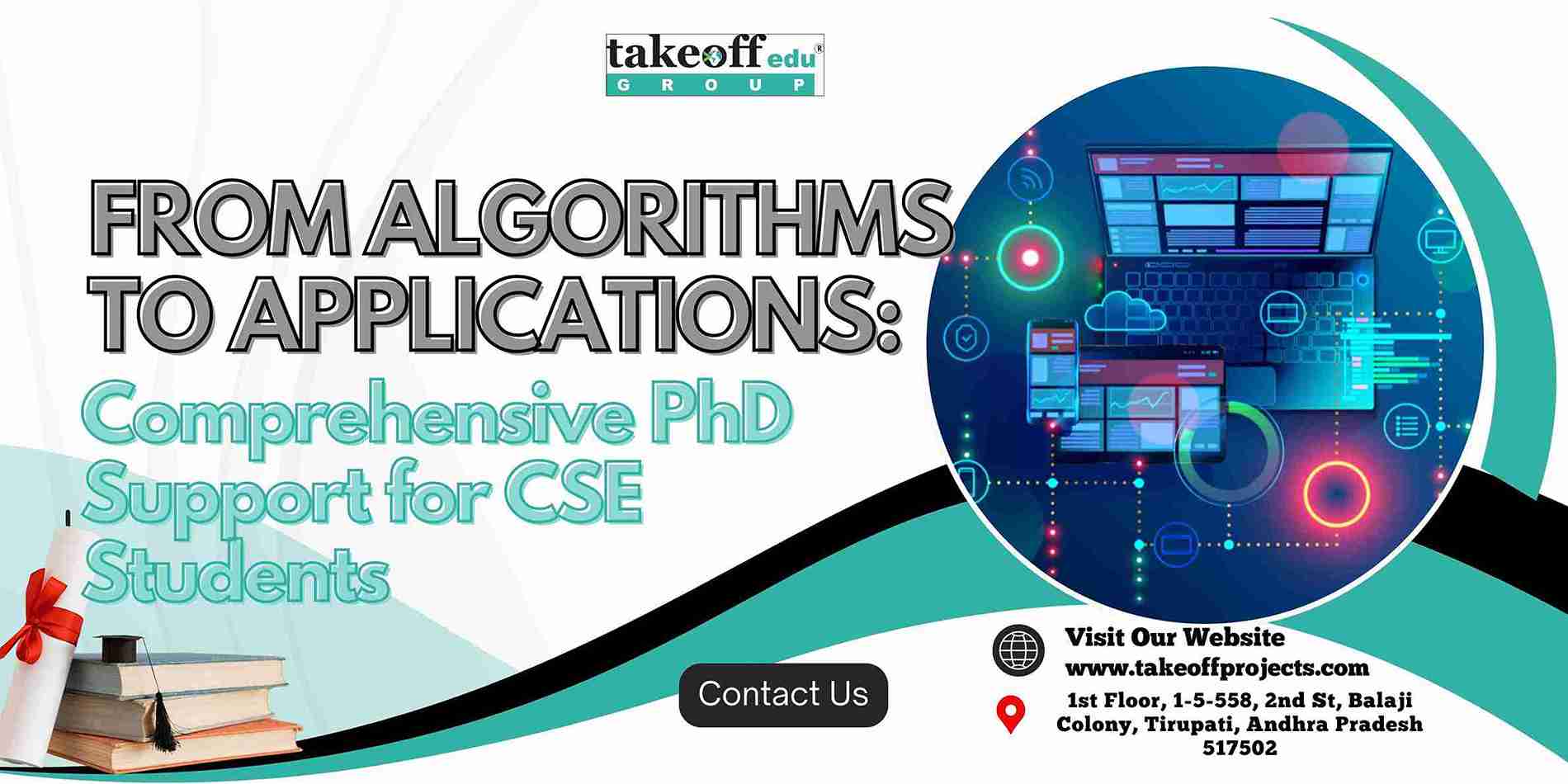 From Algorithms to Applications: Comprehensive PhD Support for CSE Students
From Algorithms to Applications: Comprehensive PhD Support for CSE Students  Cybersecurity and Blockchain: Pioneering Research Areas for PhD Scholars
Cybersecurity and Blockchain: Pioneering Research Areas for PhD Scholars  The Art of Writing High-Impact Research Papers in CSE Domains
The Art of Writing High-Impact Research Papers in CSE Domains 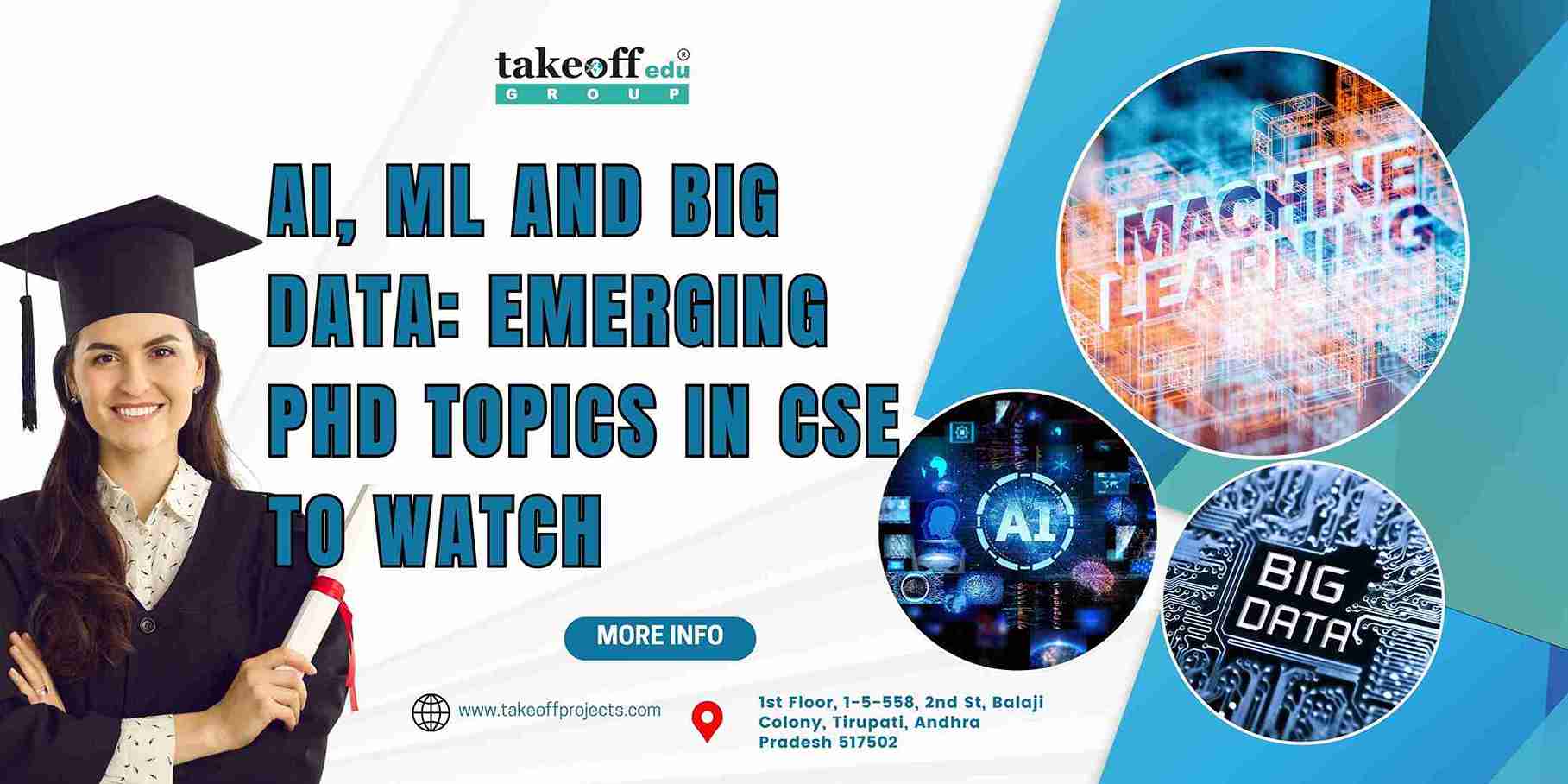 AI, ML, and Big Data: Emerging PhD Topics in CSE to Watch
AI, ML, and Big Data: Emerging PhD Topics in CSE to Watch  Top Research Trends in Electrical Drives for Aspiring PhD Scholars
Top Research Trends in Electrical Drives for Aspiring PhD Scholars 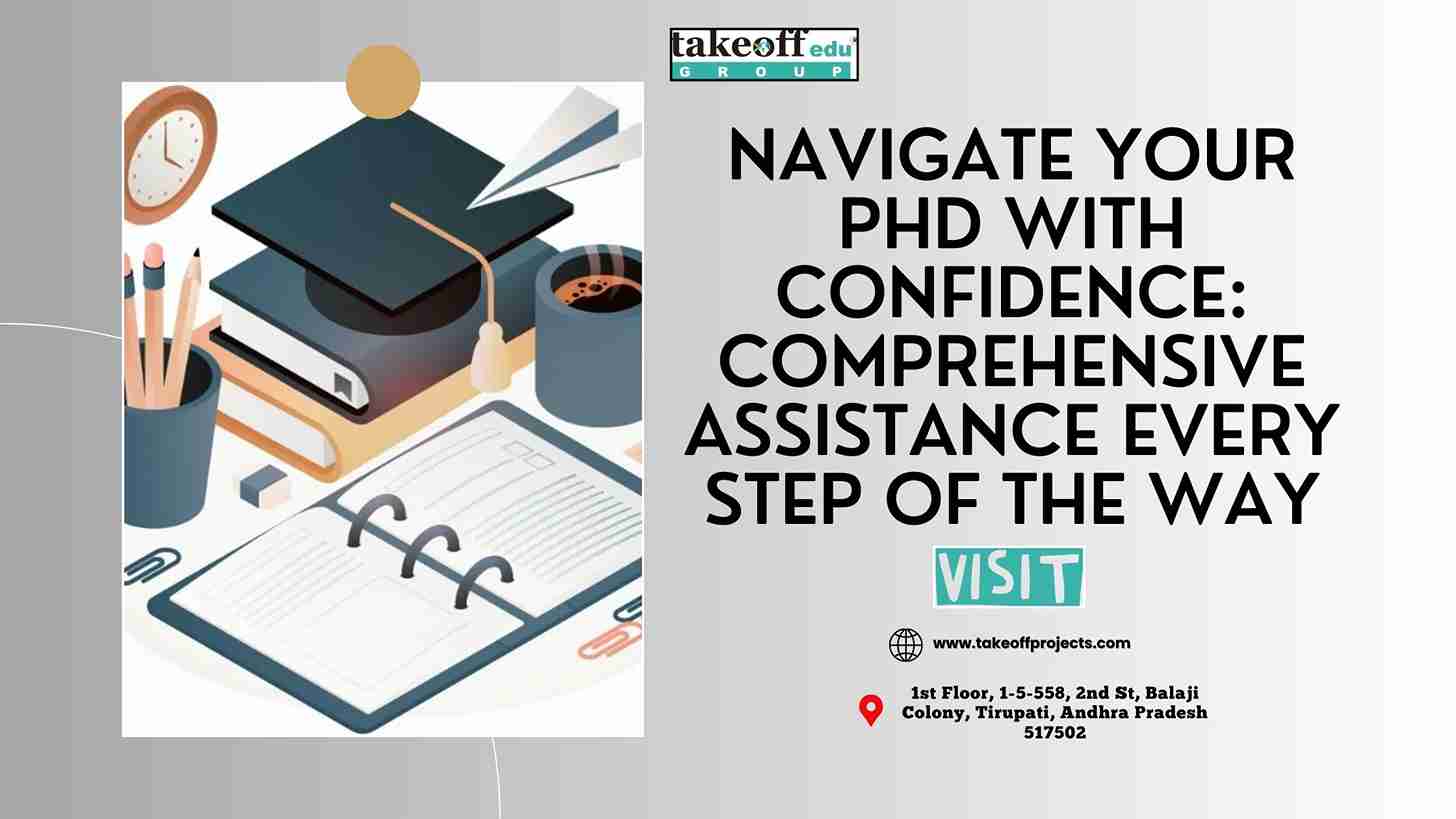 Navigate Your PhD with Confidence: Comprehensive Assistance Every Step of the Way
Navigate Your PhD with Confidence: Comprehensive Assistance Every Step of the Way  ECE Dissertation Success: Expert Tips for Writing and Publishing your Academic Success
ECE Dissertation Success: Expert Tips for Writing and Publishing your Academic Success 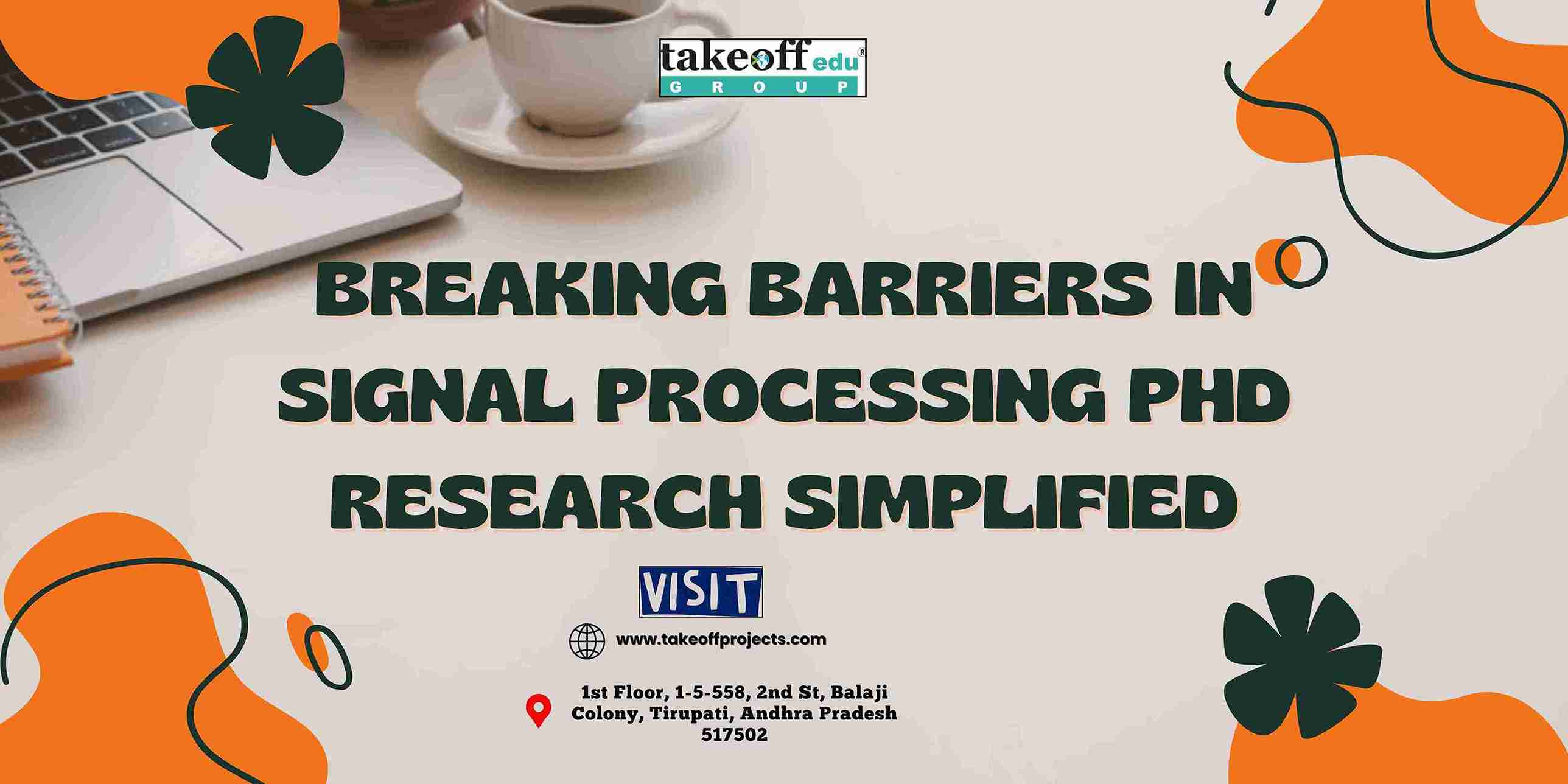 Breaking Barriers in Signal Processing: PhD Research Simplified
Breaking Barriers in Signal Processing: PhD Research Simplified  Building the Next-Gen Tech: A Guide to ECE Research and Publication
Building the Next-Gen Tech: A Guide to ECE Research and Publication 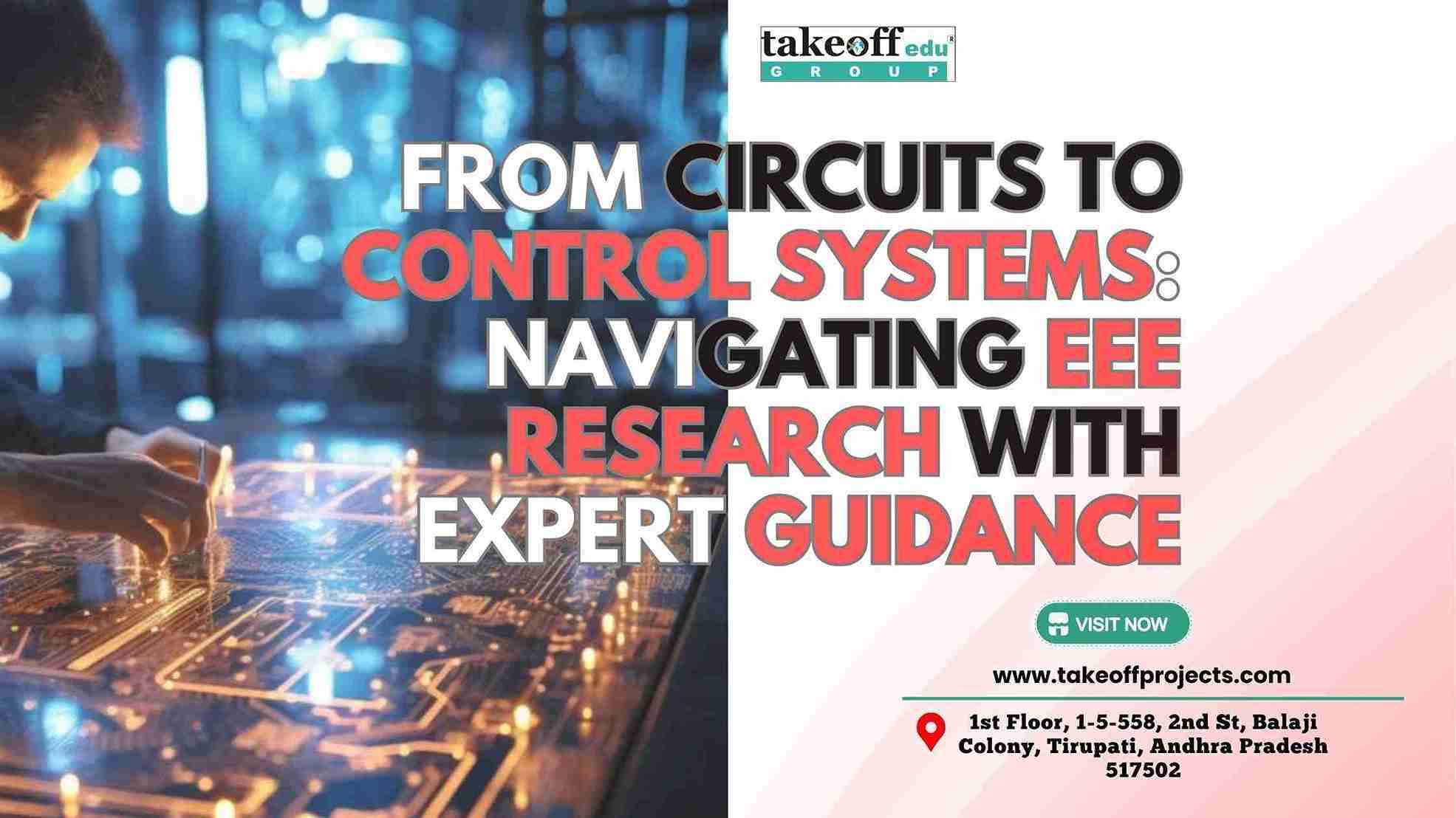 From Circuits to Control Systems: Navigating EEE Research with Expert Guidance
From Circuits to Control Systems: Navigating EEE Research with Expert Guidance  From Data to Discovery: Quantitative Analysis That Drives Results
From Data to Discovery: Quantitative Analysis That Drives Results  Future of IoT and Wireless Communication: Top PhD Opportunities in ECE
Future of IoT and Wireless Communication: Top PhD Opportunities in ECE 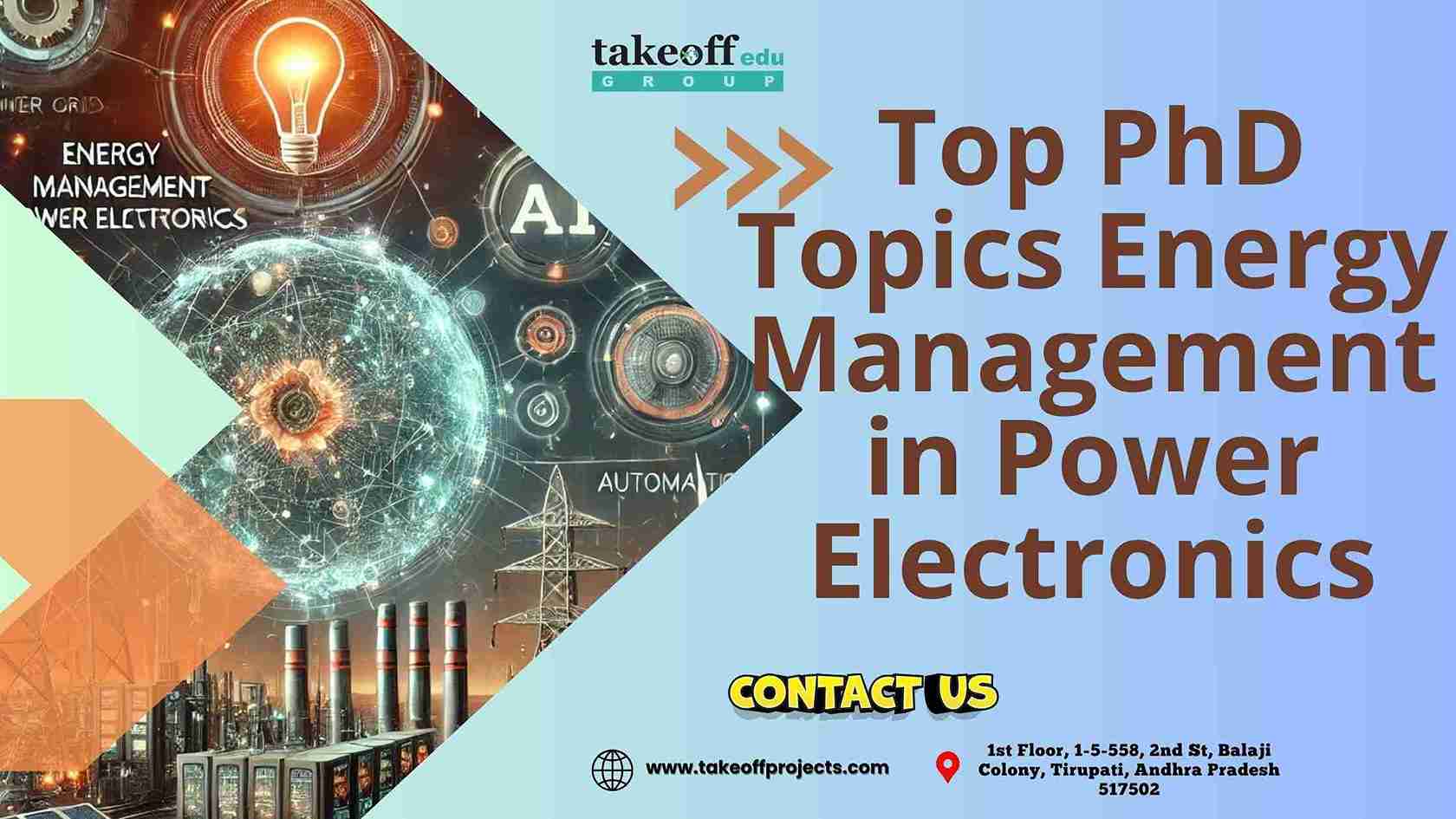 Top PhD Topics Energy Management in Power Electronics
Top PhD Topics Energy Management in Power Electronics 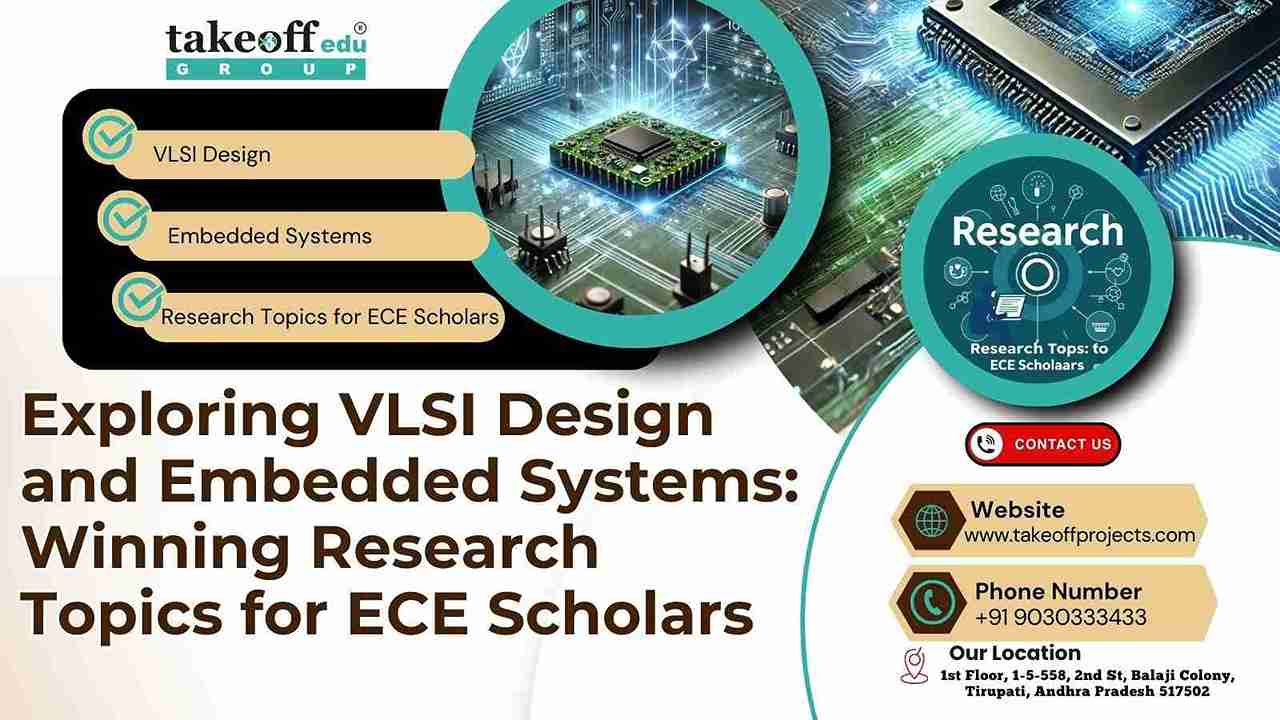 Exploring VLSI Design and Embedded Systems: Winning Research Topics for ECE Scholars
Exploring VLSI Design and Embedded Systems: Winning Research Topics for ECE Scholars  Expert-Approved Techniques for Crafting a Winning PhD Synopsis
Expert-Approved Techniques for Crafting a Winning PhD Synopsis 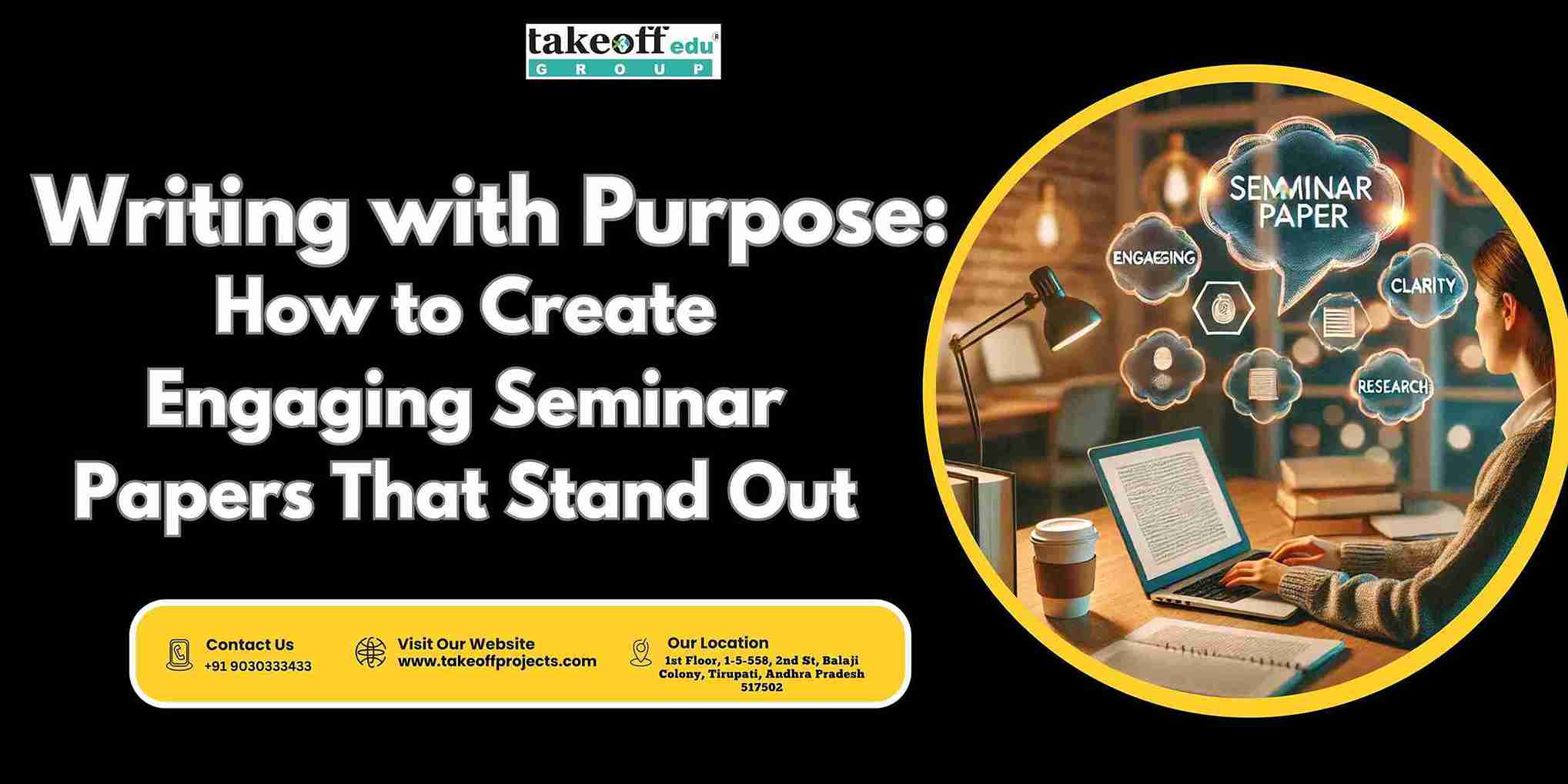 Writing with Purpose: How to Create Engaging Seminar Papers That Stand Out
Writing with Purpose: How to Create Engaging Seminar Papers That Stand Out  Unlocking Publication Success: Your Guide to High-Impact Journal Articles
Unlocking Publication Success: Your Guide to High-Impact Journal Articles 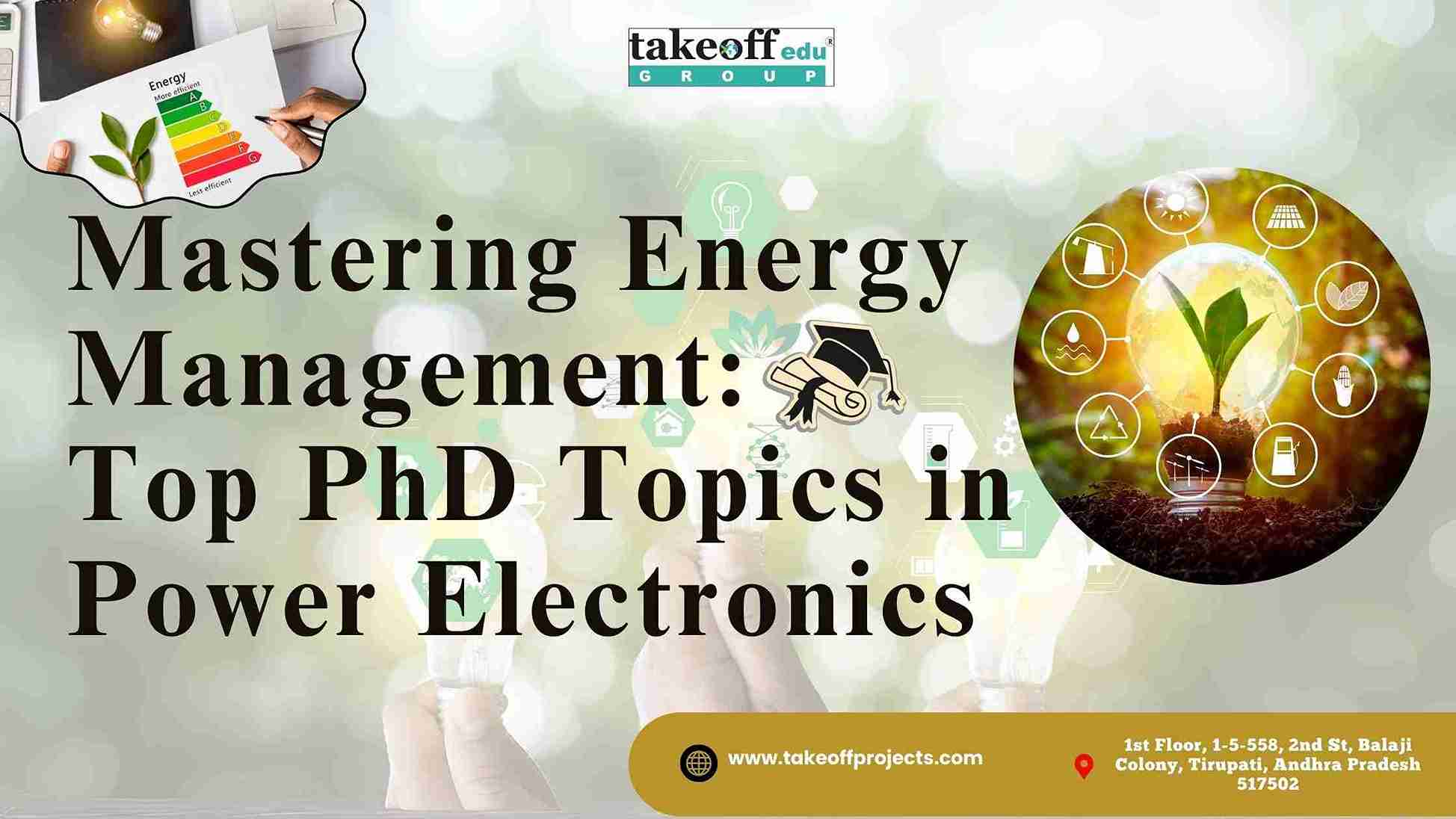 Mastering Energy Management: Top PhD Topics in Power Electronics
Mastering Energy Management: Top PhD Topics in Power Electronics  PhD Topic Selection Simplified: Choosing What Matters Most to You
PhD Topic Selection Simplified: Choosing What Matters Most to You 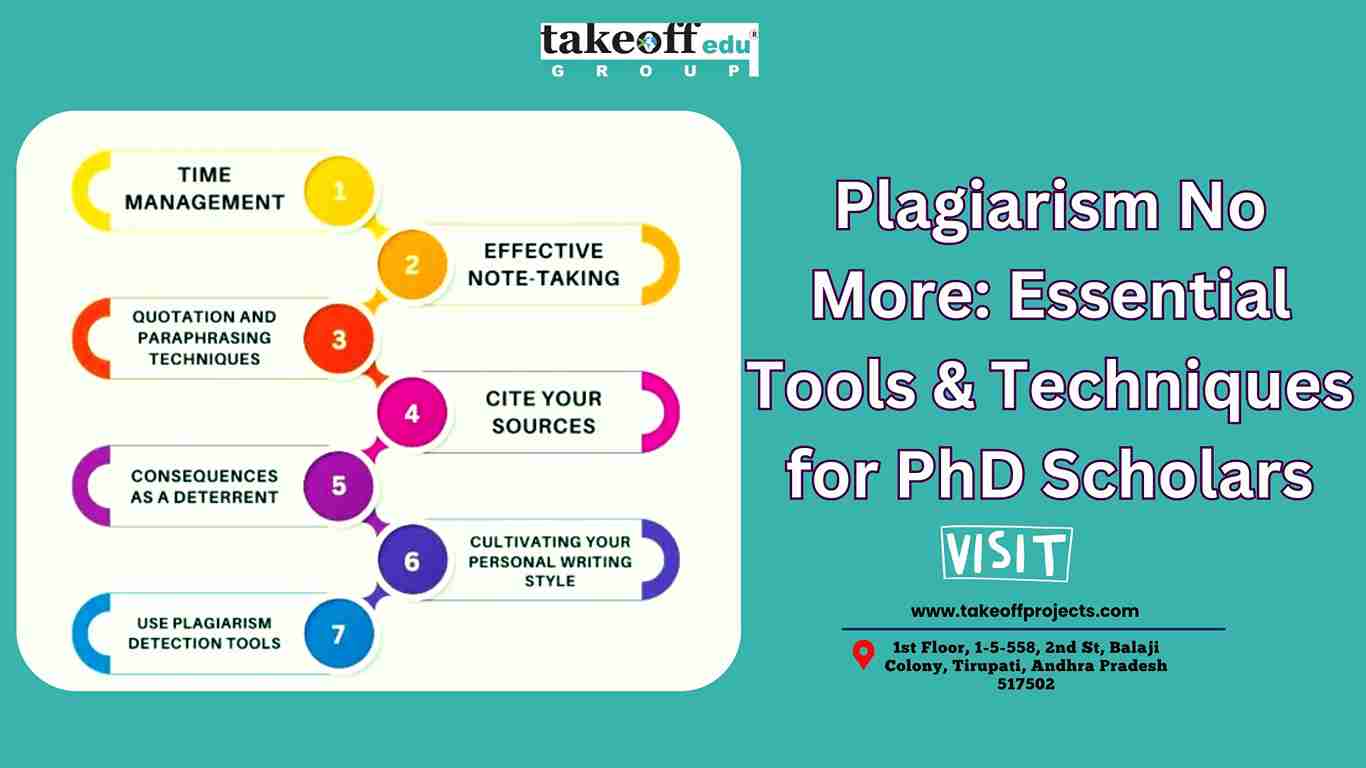 Plagiarism No More: Essential Tools and Techniques for PhD Scholars
Plagiarism No More: Essential Tools and Techniques for PhD Scholars 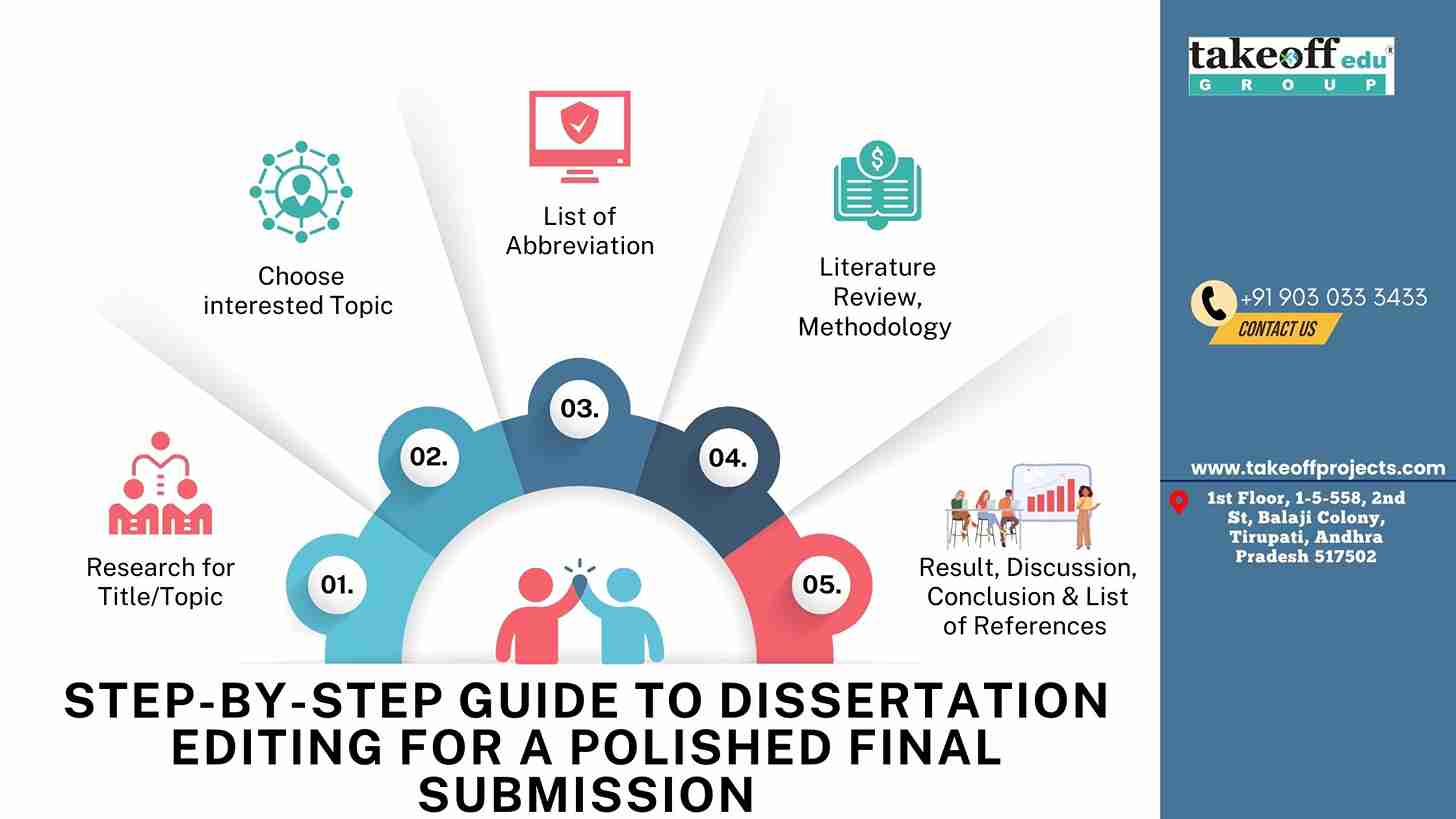 Step-by-Step Guide to Dissertation Editing for a Polished Final Submission
Step-by-Step Guide to Dissertation Editing for a Polished Final Submission  Why Literature Review Is the Backbone of Your PhD Research?
Why Literature Review Is the Backbone of Your PhD Research?  Accelerate Your Research: Software Implementation Made Easy for PhD Students
Accelerate Your Research: Software Implementation Made Easy for PhD Students  Stress-Free PhD Viva Voce Preparation: Expert Tips to Impress Examiners
Stress-Free PhD Viva Voce Preparation: Expert Tips to Impress Examiners  Transforming Data into Insights: Qualitative and Quantitative Analysis Explained
Transforming Data into Insights: Qualitative and Quantitative Analysis Explained 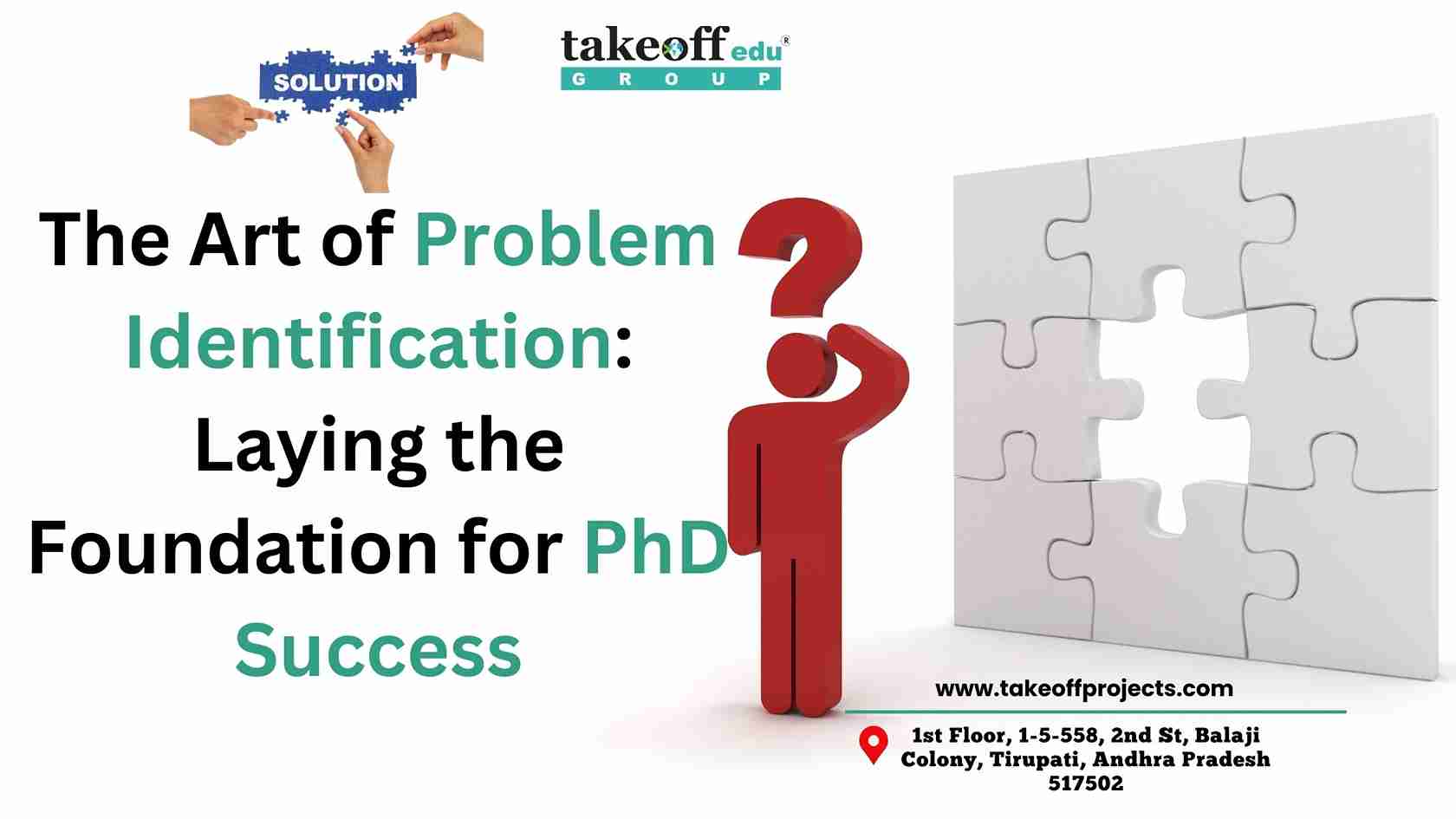 The Art of Problem Identification: Laying the Foundation for PhD Success
The Art of Problem Identification: Laying the Foundation for PhD Success  Say Goodbye to Plagiarism Worries: A Guide to Flawless Dissertation Writing
Say Goodbye to Plagiarism Worries: A Guide to Flawless Dissertation Writing 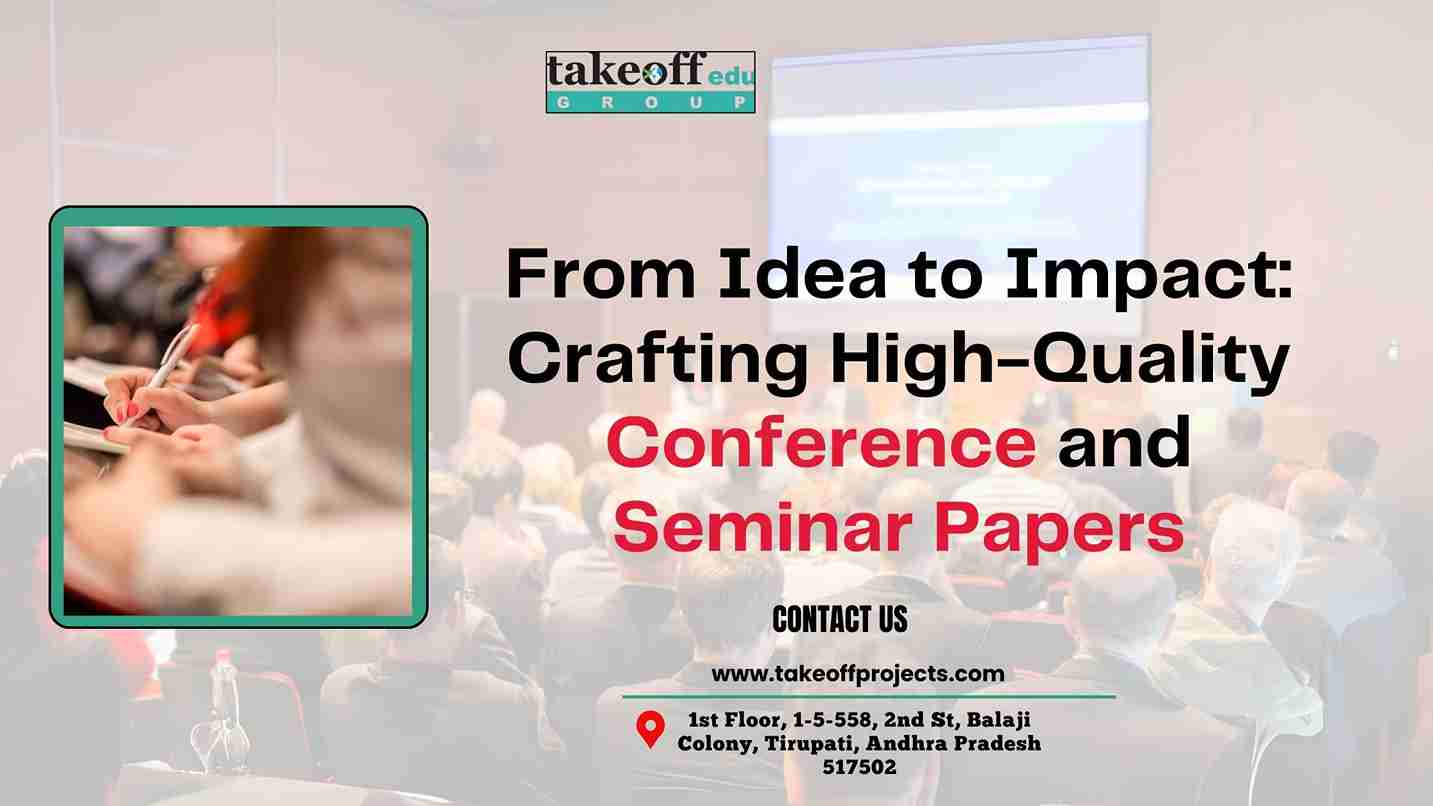 From Idea to Impact: Crafting High-Quality Conference and Seminar Papers
From Idea to Impact: Crafting High-Quality Conference and Seminar Papers 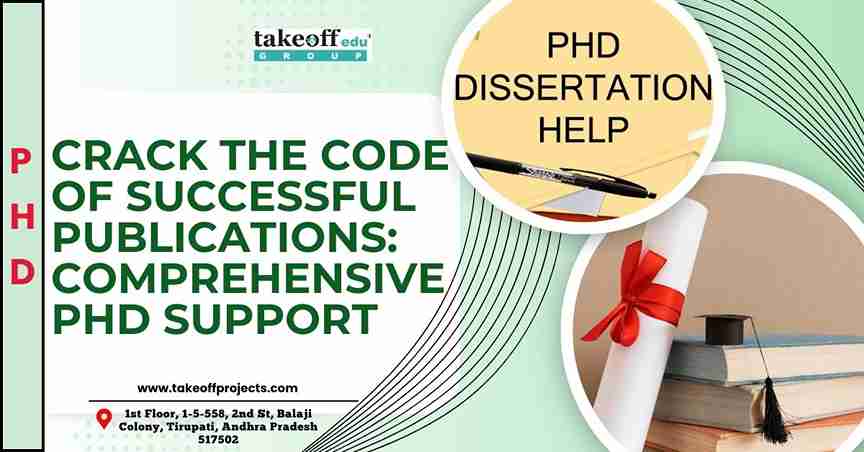 Crack the Code of Successful Publications: Comprehensive PhD Support
Crack the Code of Successful Publications: Comprehensive PhD Support 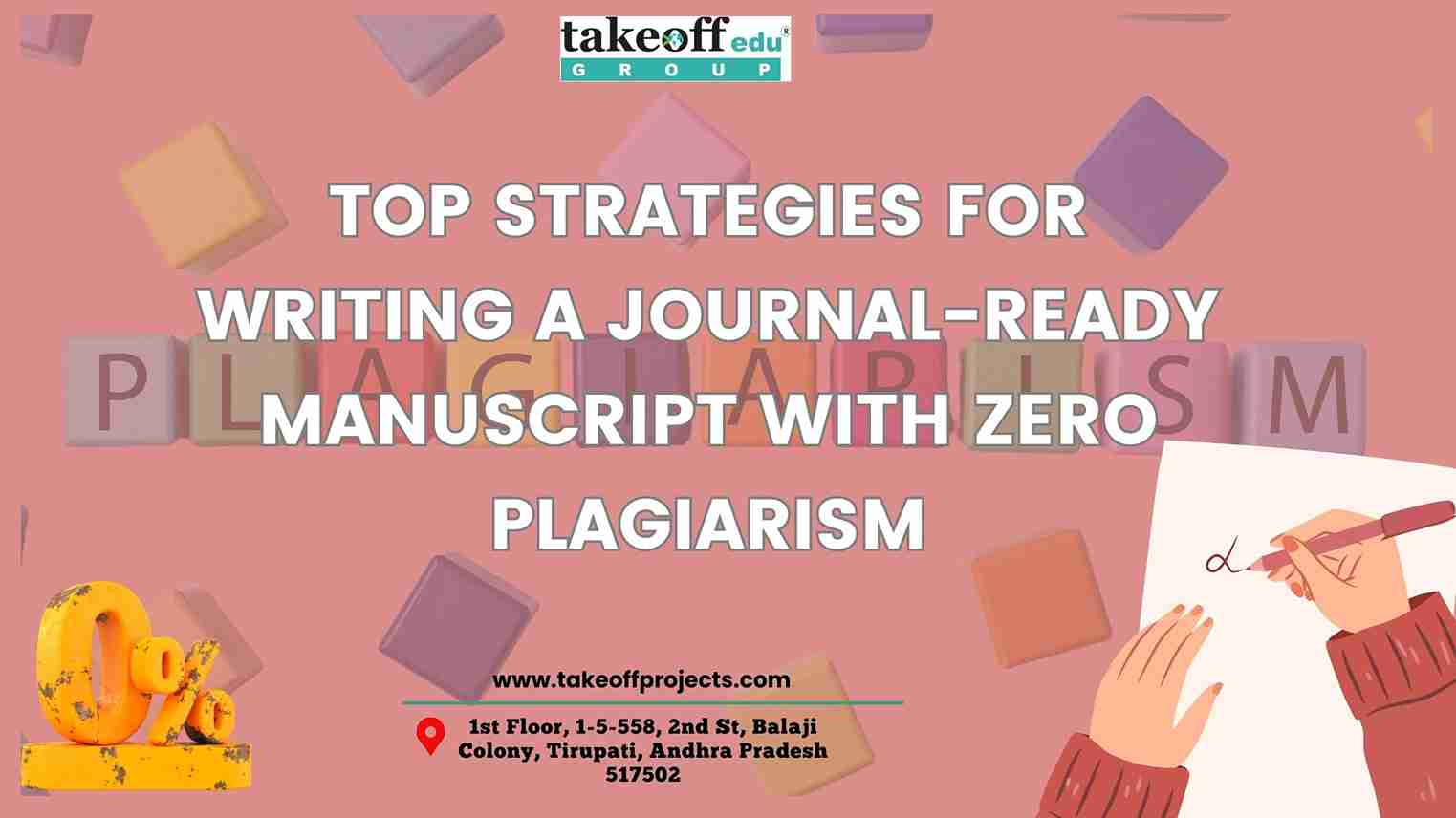 Top Strategies for Writing a Journal Ready Manuscript with Zero Plagiarism
Top Strategies for Writing a Journal Ready Manuscript with Zero Plagiarism  How to Nail Your PhD Research Proposal: Tips from the Pros
How to Nail Your PhD Research Proposal: Tips from the Pros  Understanding the Basics of Power Systems: A Comprehensive Guide
Understanding the Basics of Power Systems: A Comprehensive Guide 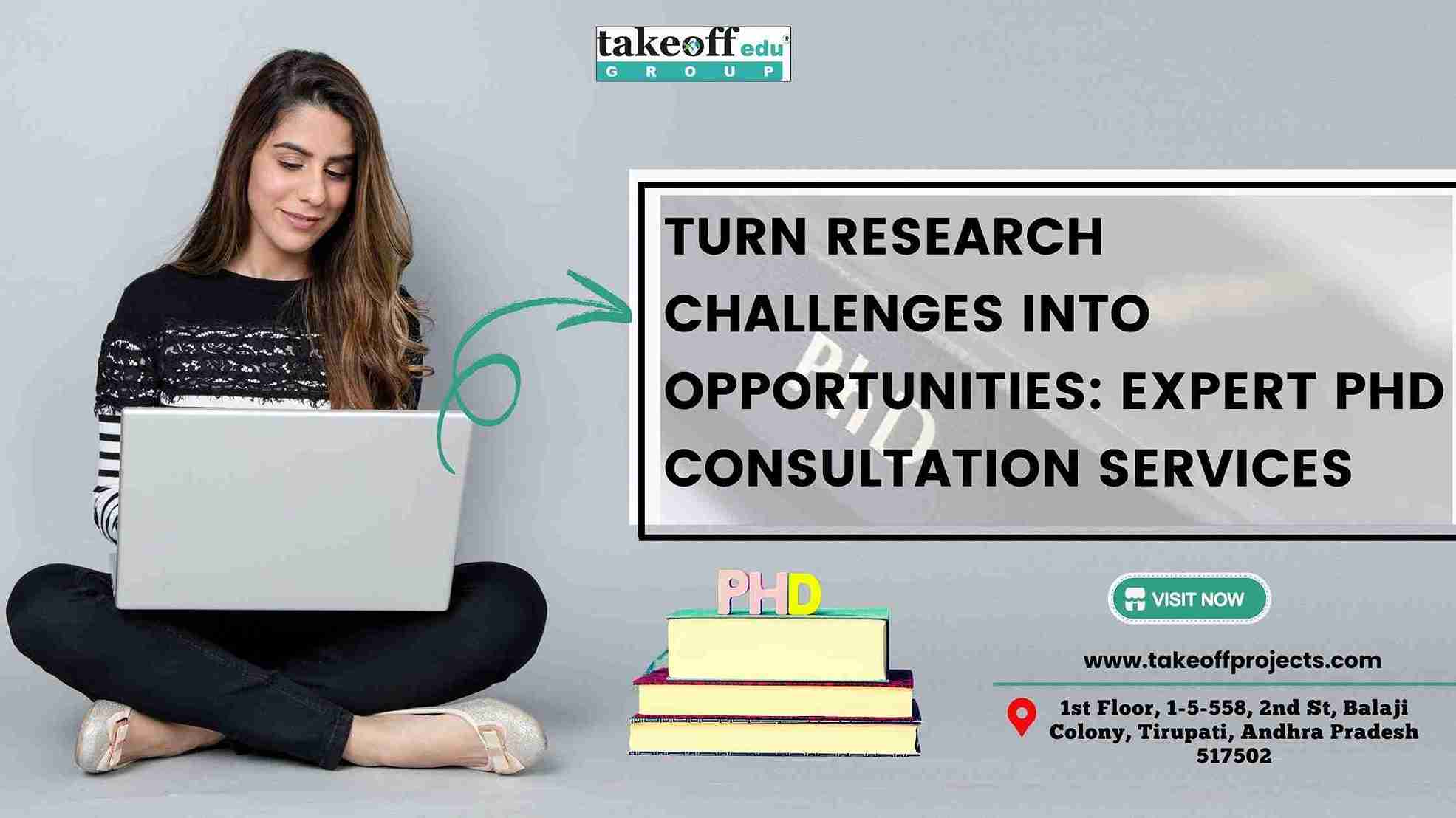 Turn Research Challenges into Opportunities: Expert PhD Consultation Services
Turn Research Challenges into Opportunities: Expert PhD Consultation Services 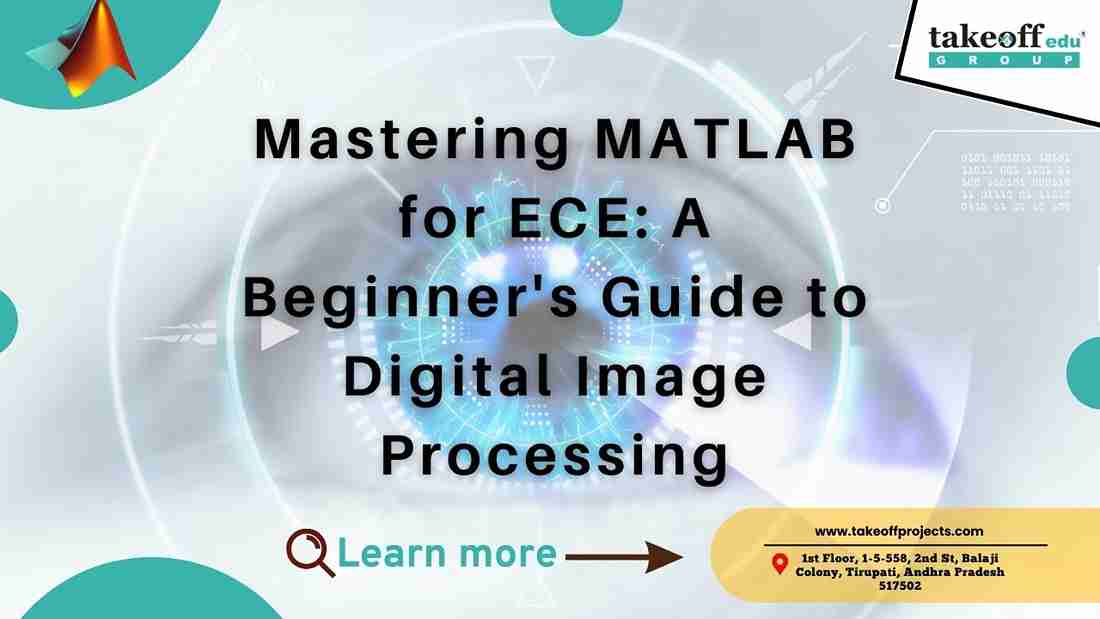 Mastering MATLAB for ECE: A Beginner's Guide to Digital Image Processing
Mastering MATLAB for ECE: A Beginner's Guide to Digital Image Processing 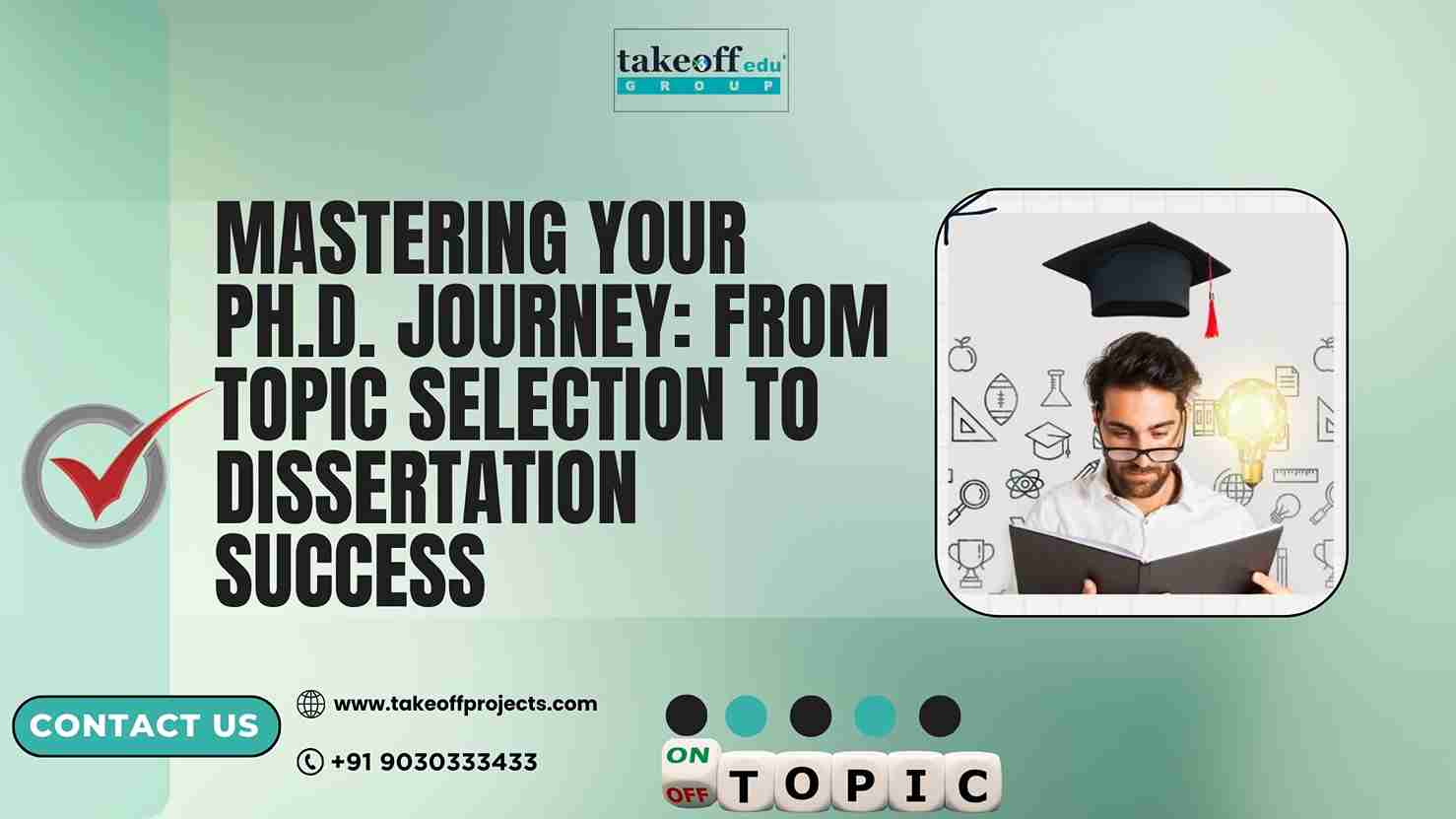 Mastering Your PhD Journey: From Topic Selection to Dissertation Success
Mastering Your PhD Journey: From Topic Selection to Dissertation Success  Assignment Writing Service
Assignment Writing Service 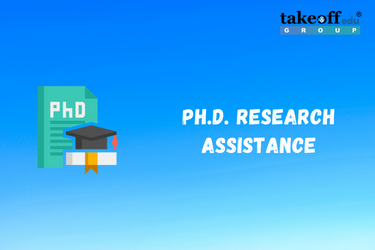 PhD Research Assistance
PhD Research Assistance 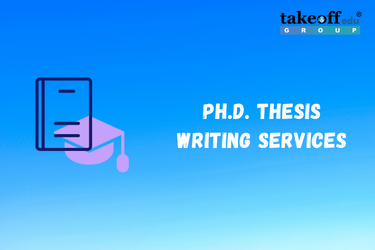 PhD Thesis Writing Services
PhD Thesis Writing Services 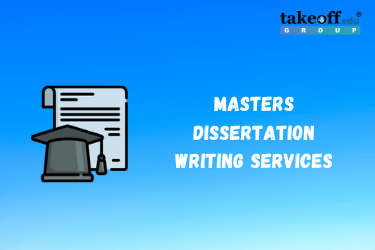 Masters Dissertation Writing
Masters Dissertation Writing 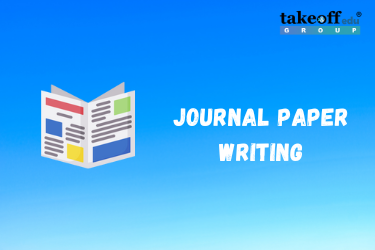 Journal Paper Writing
Journal Paper Writing 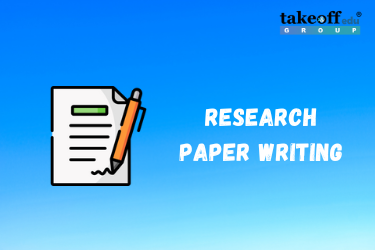 Research Paper Writing Services
Research Paper Writing Services 
 Paper Publishing
Paper Publishing


